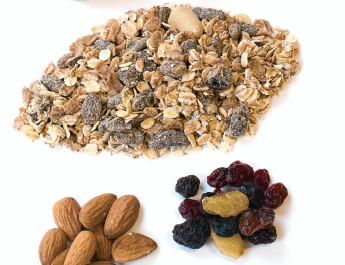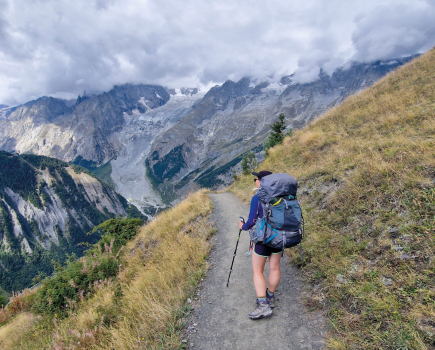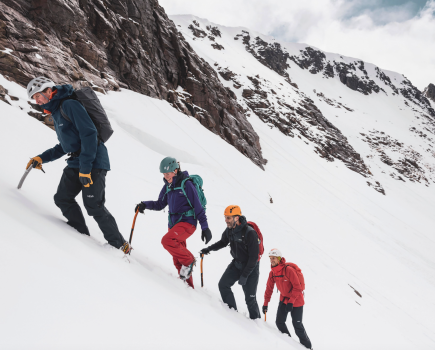Pete Catterall from Plas y Brenin explains how to keep energised on the hills during the winter months
With stronger winds, lower temperatures and heavier snowfall, winter becomes a season in which we often find ourselves digging deep in order to persevere through nature’s unforgiving elements. It is also a season in which the nutrition safely stuffed in our backpacks plays an even more vital role.
According to Plas y Brenin instructor Pete Catterall, there is an art to fuelling the body in the harsher months. “In winter your pack can be quite full as you need to carry more clothing and equipment, with space for food being left as an afterthought,” Pete explains. “Taking food that is lightweight and cooks quickly will make a big difference to the weight of your pack, and cooking fast means less fuel needed too.”
Calories
The amount and type of food needed is a very individual thing that’s based on your Basel Metabolic Rate (BMR) – this relates to the minimum amount of calories you need to keep your body functioning at rest. An average male would need to take on between 1600-1800 calories and a female 1300-1500 – this would then need to be doubled to meet the physical demands of a hard winter walk. Check labels of packaging and add them up to make sure you’re getting enough. Forget taking low calorie options!
Cooking
Take food that can be cooked in one pot and cooks quickly. This will save weight in fuel and pans. If you’re taking ready meals it’s worth packing rice or pasta as it can be cooked in the water while the packet food is cooking.
Carbohydrates
Food that is made up of carbohydrates is going to provide you with the best source of energy. A mixture of slow release carbohydrates such as oats, dried fruit, nuts, rice,
pasta and vegetables will help keep you going all day. Add some fast-release carbs like sweets, chocolate biscuits and cakes to give you a more instant boost of energy. It’s really important not to just go for the second option as it will often lead to sudden high energy levels followed by crashing lows.
Proteins
Avoid too much protein as your body will struggle to digest it while active. Save your protein bars and snacks for the end of the day – it’s better saved until you’re home or in camp to help repair the body for the next day.
Pre-prepared nutrition
Pasta with roasted vegetables and feta is a favourite – it’s easy to make the night before and it’s quick to grab out of the fridge in the morning before you head out. Any rice or pasta dishes you can make the night before are also great, but most importantly make sure it’s something you like.







